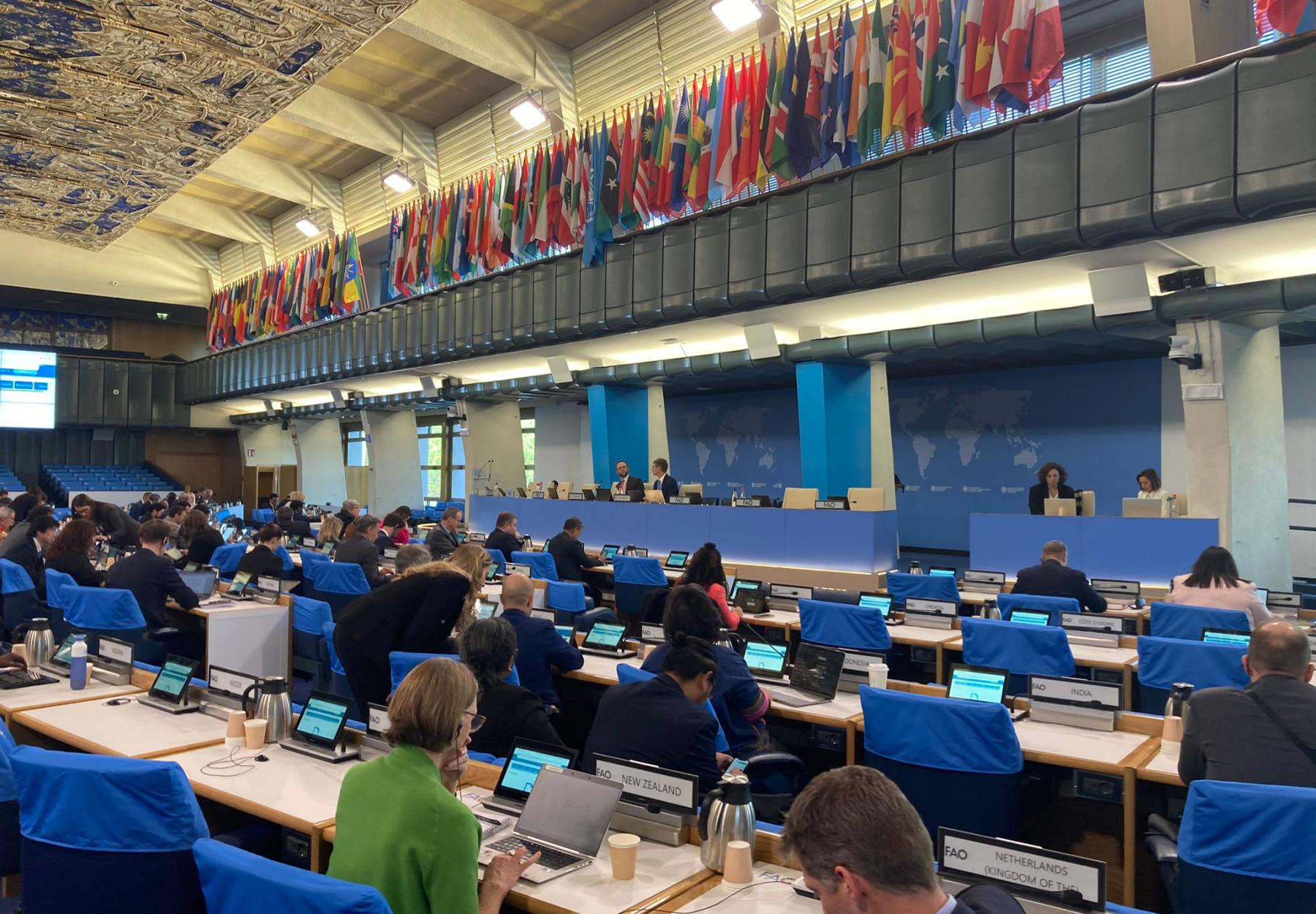
APN | Rome - Zoom
30 November 2023
Following a month-long delay, the 51st plenary session of the United Nations Committee on World Food Security (CFS) concluded on November 25, 2023, instead of the initially scheduled date of October 27, 2023. The suspension of the closing session, focused on food security in conflict zones, occurred when the representative of Egypt submitted a proposal regarding the criminalization of using food as a weapon in Gaza. This proposal provoked the United States representative of Washington, who rejected it and exited the room.
Following weeks of consultations with various countries, a revised text for the same paragraph was submitted in a vague and unclear manner just hours before the extended session. This submission, which softened the original content, still left the United States unsatisfied. Nevertheless, the revised text was intended to be included in the final report of the Committee. It "stressed the need to refrain from using food and water as weapons of war in conflict areas". Additionally, “it expressed the need for reliable, sustained, sufficient and unhindered access of essential goods and services to civilians throughout the Gaza Strip”. The statement also highlights the role of FAO, IFAD, and WFP, in collaboration with other UN agencies, international financial institutions, and relevant bodies, in assessing and addressing the consequences of conflict on food security and agriculture in Gaza and the occupied Palestinian territory.
In the closing debate, the representative of the Arab Network for Food Sovereignty in the Civil Society and Indigenous Peoples Mechanism (CSIPM), Mariam Mohammed, criticized that the clash over wording did not change the reality on the ground. What is being committed by the Israeli occupation is the indiscriminate massacre and bombing of hospitals, schools, refugee camps, women, children, infants, and elderly. Conflict areas in agreed language could not change that it is occupied areas on the grounds of reality, including Gaza and the rest of occupied Palestine. While language was and still is being discussed, our people in Palestine were and still are being ethnically cleansed in the most brutal and horrific forms, as well as starved and thirsted.
She hoped that the CFS is strengthened through this debate, reinforcing the role of the Plenary to provide guidance and actionable recommendations towards achieving a world free from hunger, food insecurity, malnutrition, double standards, and the selective protection of human rights. She referred to UN experts who have sounded the alarm about the risk of genocide through this war. She added that the CFS has the obligation to urgently work toward preventing this atrocity from further escalation, considering that what is happening in Palestine is the weaponization of food. Finally, she expressed confusion on how we have reached a point where asking for the end of a genocide and a war has become controversial.
It is noteworthy that APN, in collaboration with a coalition of Arab civil society organizations, founded the Arab Network for Food Sovereignty in 2012 in Beirut, Lebanon. This network operates as an independent civil coordinating body, adhering to the principles of food sovereignty. Its primary objectives include promoting resilience strategies and addressing the root causes of social, economic, agricultural, and environmental vulnerabilities faced by Arab societies. The network consists of over 35 non-governmental organizations and unions representing farmers, fishermen, pastoralists, workers, women, and youth from 13 Arab countries.